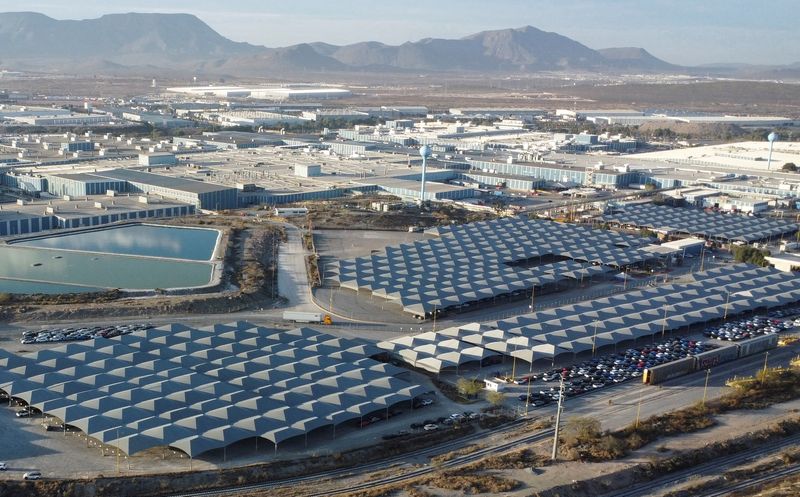
By Nora Eckert and Victoria Waldersee
DETROIT/BERLIN (Reuters) – U.S. President Donald Trump’s announcement of a 25% tariff on auto imports rippled throughout the world on Thursday, as global carmakers warned of immediate price hikes and dealers raised fears of job losses in big auto-exporting countries, many of which are U.S. allies.
The new levies are a precursor to another expected round of wide-ranging U.S. tariffs to be levied next week. But the auto tariffs alone could add thousands of dollars to the average cost of a vehicle in the U.S. and further dampen demand at a time when the sector is already struggling to manage the transition to electric cars. Most auto stocks tumbled on Thursday, with U.S. electric-vehicle maker Tesla a noted exception.
“The entire automotive industry, global supply chains and companies as well as customers will have to bear the negative consequences,” said Germany’s Volkswagen in a statement.
The United States is the world’s largest importer of cars, most from Japan, South Korea and Germany, along with vehicles from neighbors Canada and Mexico. Nearly half of all cars sold in the U.S. last year were imported, according to research firm GlobalData.
Shares of General Motors were down nearly 7% on Thursday afternoon, while Ford Motor and U.S.-listed shares of Stellantis were down about 3%. Tesla’s stock rose about 5%, as Elon Musk’s company is less exposed to tariffs than its competitors.
“There are no ‘winners’ in the absolute – only relative winners, with a significant amount of cost set to be introduced into the industry,” Barclays analysts said in a note, calling Trump’s tariffs a “more draconian outcome than most anticipated.”
Proponents of Trump’s efforts, including the U.S. United Auto Workers, say the United States should be focused on boosting domestic production, though the process of moving facilities would likely take years, during which costs will rise and production could drop. The American Automotive Policy Council, which represents the Detroit Three automakers, said late on Wednesday that “U.S. Automakers are committed to President Trump’s vision of increasing automotive production and jobs in the U.S. and will continue to work with the Administration on durable policies that help Americans.”
The AAPC added that it is “critical” that the tariffs are implemented in a way that avoids price hikes for consumers.
It may take some time before dealers and consumers see major shortages. Dealers had an average of 89 days of supply on their lots in early March, according to Cox Automotive data. Some consumers have been trying to secure purchases before prices start to rise.